Question And Answer
Publications
Articles, publications, books, tools and multimedia features from the U.S. Institute of Peace provide the latest news, analysis, research findings, practitioner guides and reports, all related to the conflict zones and issues that are at the center of the Institute’s work to prevent and reduce violent conflict.
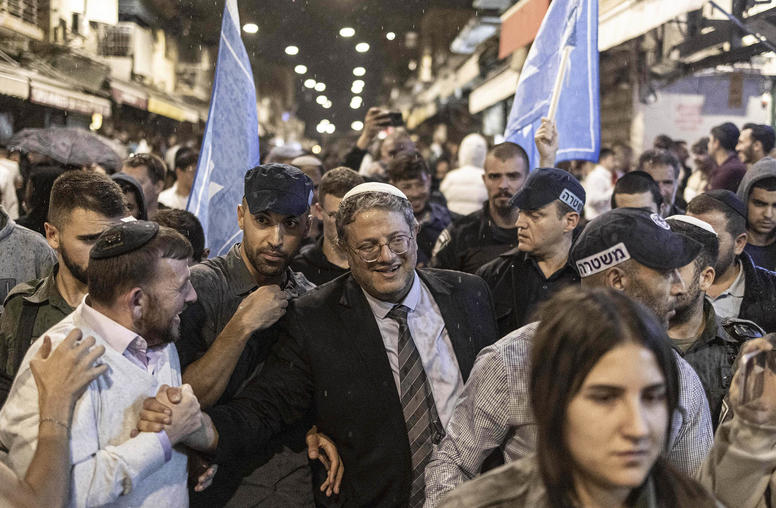
What Does Israel’s New Government Mean for the Israeli-Palestinian Conflict?
As 2022 came to a close, Benjamin Netanyahu once again took the helm of Israel’s government just 18 months after losing power in the wake of a series of stalemated elections. Already Israel’s longest-serving prime minister, Netanyahu’s approach to foreign policy, and to the conflict with and occupation of the Palestinians, is to some extent a known quantity. However, with his comeback and governing coalition dependent on the support and partnership of once-fringe extremist parties and politicians, 2023 holds the potential for conflict-driving disruption. USIP’s Lucy Kurtzer-Ellenbogen discusses the possible implications of Israel’s new government for the Israeli-Palestinian conflict and for Israel’s regional and foreign relations.
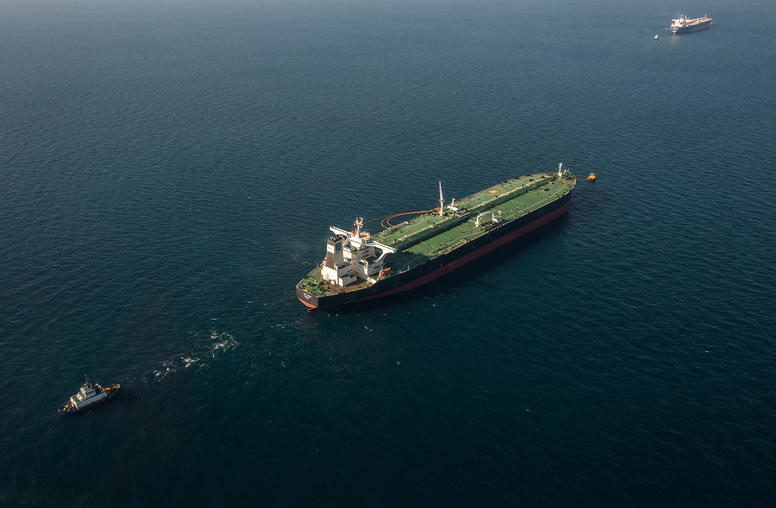
China’s Overreliance on Gulf Oil Is a Vulnerability for Everyone
Gulf states have proven to be a dependable port in a storm for China’s oil producers and traders. For the past two decades, the region has consistently supplied China — the world’s largest single crude oil importer — with roughly half of its crude oil imports from overseas. By contrast, it seems China’s oil interests in every other region of the world have been battered by gale force winds.
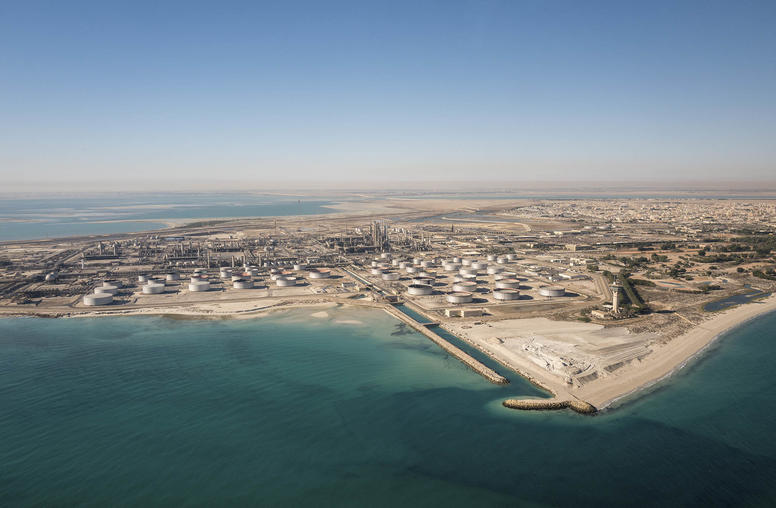
After Xi’s Visit, Are the Saudis Moving on from the United States?
Chinese leader Xi Jinping made a long-rumored trip to Saudi Arabia last week, enhancing ties between his country, the world’s top oil importer, and the leading oil exporting country. Xi and Saudi Crown Prince and Prime Minister Mohammed Bin Salman (MBS) inked a number of deals on oil, technology, infrastructure and security, and also made an agreement to avoid interference in each other’s domestic affairs. Xi also met with leaders from the Gulf Cooperation Council (GCC) and a broader group of Arab leaders. The China-Saudi summit comes amid frosty U.S.-Saudi ties and a perception among Arab leaders that Washington is pulling back from its traditional role in the Middle East, leading to some speculation of a larger geopolitical shift in the region amid the intensifying U.S-China rivalry.
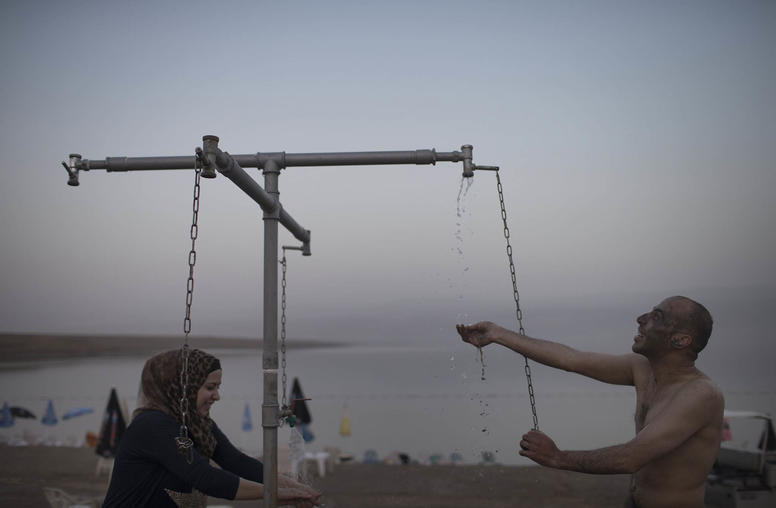
Water Can Be a Rare Win-Win for Israelis, Palestinians and the Region
From Israel’s turbulent electoral politics and Palestinian political dysfunction to the cycle of intercommunal violence in the West Bank and the humanitarian catastrophe in Gaza, it’s rare for much good news to come out of the Israeli-Palestinian context these days. But this June, a hopeful story emerged from the impoverished Gaza Strip when its Mediterranean beaches were deemed safe for swimming for the first time in decades.

Event Extra: Syria’s Brutal Civil War and the Elusive Quest for Justice
In 2016, the U.N. General Assembly established the International, Impartial and Independent Mechanism for Syria (IIIM), after vetoes in the U.N. Security Council prevented referral of the Syrian situation to the International Criminal Court. IIIM Head Catherine Marchi-Uhel discusses the obstacles to this work, the progress made to date and what lessons it can provide for delivering accountability and justice in other conflicts.

Lucy Kurtzer-Ellenbogen on Israel’s Election
A coalition involving several extreme right-wing parties has Benjamin Netanyahu poised to return as Israel’s prime minister. “In some sense he owes them a debt,” says USIP’s Lucy Kurtzer-Ellenbogen. “What is the cost being extracted by these right-wing parties” as the government formation process begins?
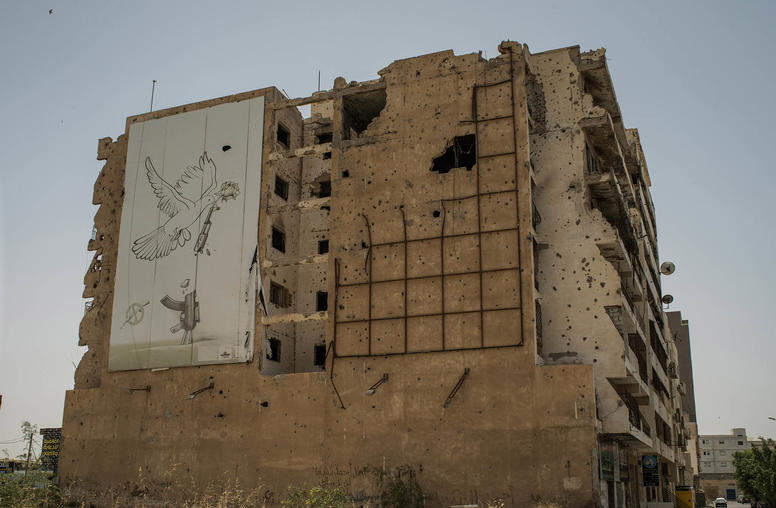
From Factionalism to Foreign Interference: Libya’s Conflict Remains Frozen
Over 11 years after the death of dictator Muammar Qaddafi, Libya’s conflict is seemingly stuck in place. Rival governments in the country’s East and West, factionalism, militia warfare and foreign interference have all contributed to a complex conflict that still has no resolution in sight. In a bid to advance the peace process, the United Nations convened the Libyan Political Dialogue Forum (LPDF) in late 2020 with 75 Libyans from across the country’s diverse social and political spectrum. Among other things, participants agreed on a roadmap for national elections to be held on December 24, 2021.
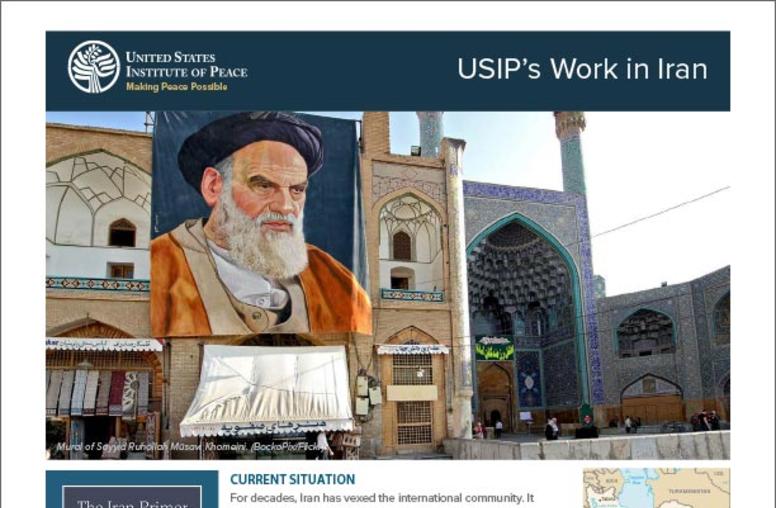
The Current Situation in Iran
For decades, Iran has vexed the international community. It introduced Islam as a form of governance in 1979 and has supported militants abroad and defied international norms. In May 2018, the Trump administration withdrew from the 2015 nuclear agreement negotiated by six world powers and Iran. The administration argued that the deal did not adequately curb Tehran’s nuclear program or address its missile program, human rights abuses, and support for terror.
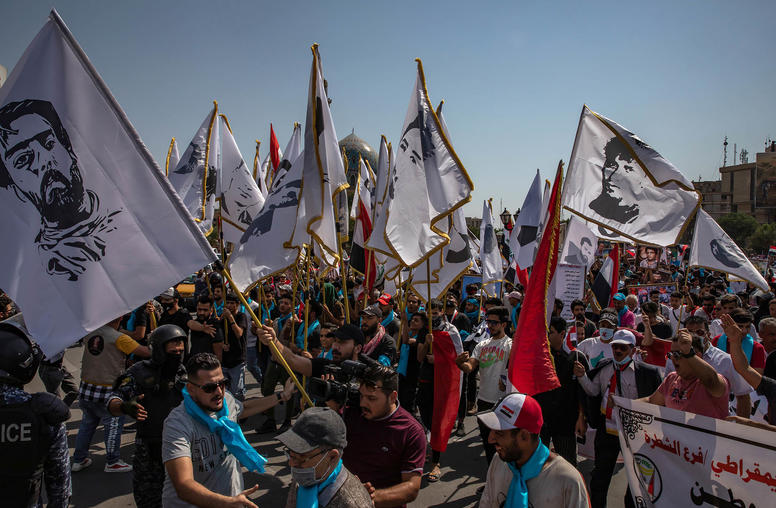
A Year After Elections, Iraq May Finally Be Set to Form a Government
Iraq hit two anniversaries this month. Three years ago in October, Iraqis rose up to protest the failure of the Iraqi government and political class in delivering basic services, providing jobs, fighting corruption and more. One of the outcomes of those protests was early elections, which were held on October 10, 2021, but have yet to yield a government. The last year witnessed crippling political gridlock, as the winner of the 2021 national parliamentary elections, Moqtada al-Sadr, eventually withdrew from the political process after failing to form a government.
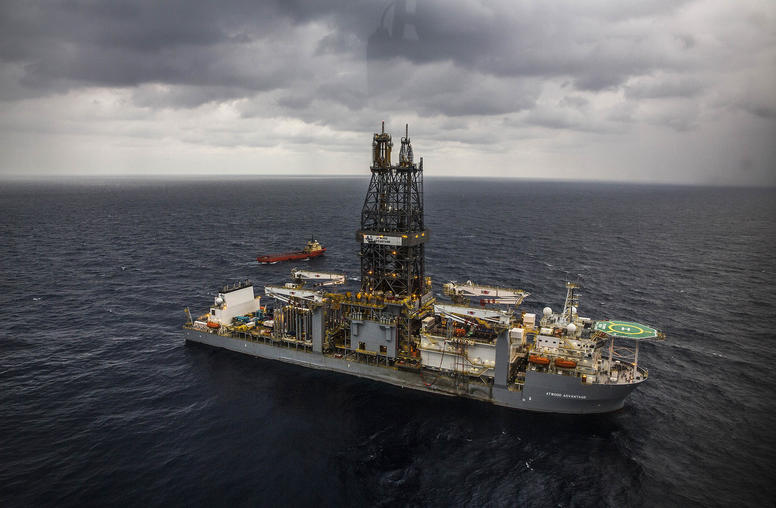
Could the Israel-Lebanon Maritime Border Deal be a Game-Changer?
Israel, Lebanon and the United States announced this week that a deal has been reached between Israel and Lebanon on each country’s maritime border. Negotiations between the parties over the 330-square-miles of the Mediterranean Sea have proceeded with stops and starts since 2020, but over the past few months edged toward a mutually acceptable outcome. Under the agreement, the contested waters will be divided by a line straddling the “Qana” natural gas field. Both parties would be able to produce gas on their side of the line, in addition to royalty arrangements agreed upon. A buoy line will remain between the two countries.